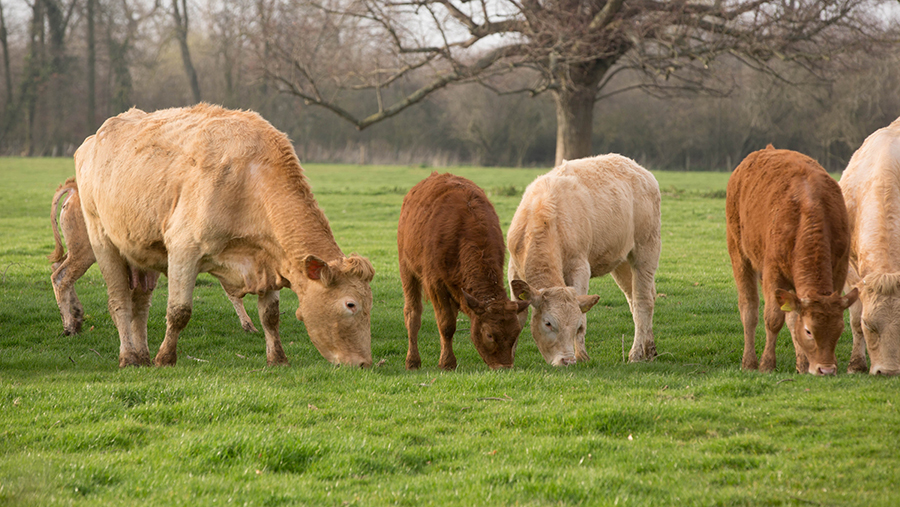Opinion: How sustainable is our meat? Depends on the metrics
 © Tim Scrivener
© Tim Scrivener Livestock play a vital role in sustainability, but great care must be taken when developing and using metrics to ensure they are based on balanced evidence and proper scientific appraisal.
For example, scientists looking at the effect livestock consumption is having on the planet often use the single measure of carbon dioxide production per kilogram of food produced.
But this is not a fair comparison, as 1kg of beans is completely different to 1kg of beef in the nutrients it provides.
Professor Michael Lee

Professor Michael Lee is deputy vice-chancellor at Harper Adams University.
In this opinion article he explains why it is crucial to consider the full picture before condemning meat production for its environmental impact.
See also: Ruminants are no ‘bete noire’ for greenhouse gases
Human nutritionists will tell you that animal-based products – be they eggs, milk or meat – have a vital role to play as part of a healthy, balanced diet due to the different composition and density of nutrients compared with plant-based foods when consumed together.
Issues in human health and diet are down to overconsumption and too much processing, and that is true with animal-based and plant-based products.
The sustainability of different meats is complex, with trade-offs. For example, chicken results in less carbon pollution than beef per kilogram of product, but is less nutrient dense.
So, when compared at a nutrient content level, beef produces less carbon than chicken. Different metrics will alter the ranking in relation to sustainability.
Once you consider the wider aspects of sustainability, it is clear that this cannot be solved by simply removing meat from our diets. Indeed, for many aspects this would be detrimental.
So where to start with something as complex as sustainability in relation to food production and diet? The starting point should be driven by the most valuable resource on farm – soil.
Soil needs organic matter, and one of the best methods for its delivery is returning livestock manure to support arable crop production.
This will not only improve crops yields, but also reduce fossil fuel use, as we will need less inorganic fertiliser for arable systems.
Another argument used for the removal of livestock is competition with human edible food and land use efficiency. However, livestock can be additive and not detractive, if raised on land not suitable for growing crops or as a user of waste-streams from the food industry.
If you use a metric of “food produced per unit of arable land”, you will actually show that lamb is the most sustainable protein.
Our requirements for protein could all come from plants, livestock, or a sensible combination of the two.
A vegan diet may use land less efficiently than an omnivorous diet, as livestock can use by-products and land not suitable for growing crops.
Also, the combination of plant and livestock protein in the diet will increase the use of not only that protein, but also the minerals and vitamins acquired from the more balanced diet.
However, we need to consume all protein in moderation as, on average, we currently eat more than is good for us or the planet, and we certainly need to eat more fresh fruit and vegetables.
Finally, don’t forget that livestock are more than just food. They are a key historical component of life in the British Isles, and provide us with a range of other products that should be used to reduce waste and wean us away from other materials, such as plastics and biodiversity-damaging imported palm oil.
